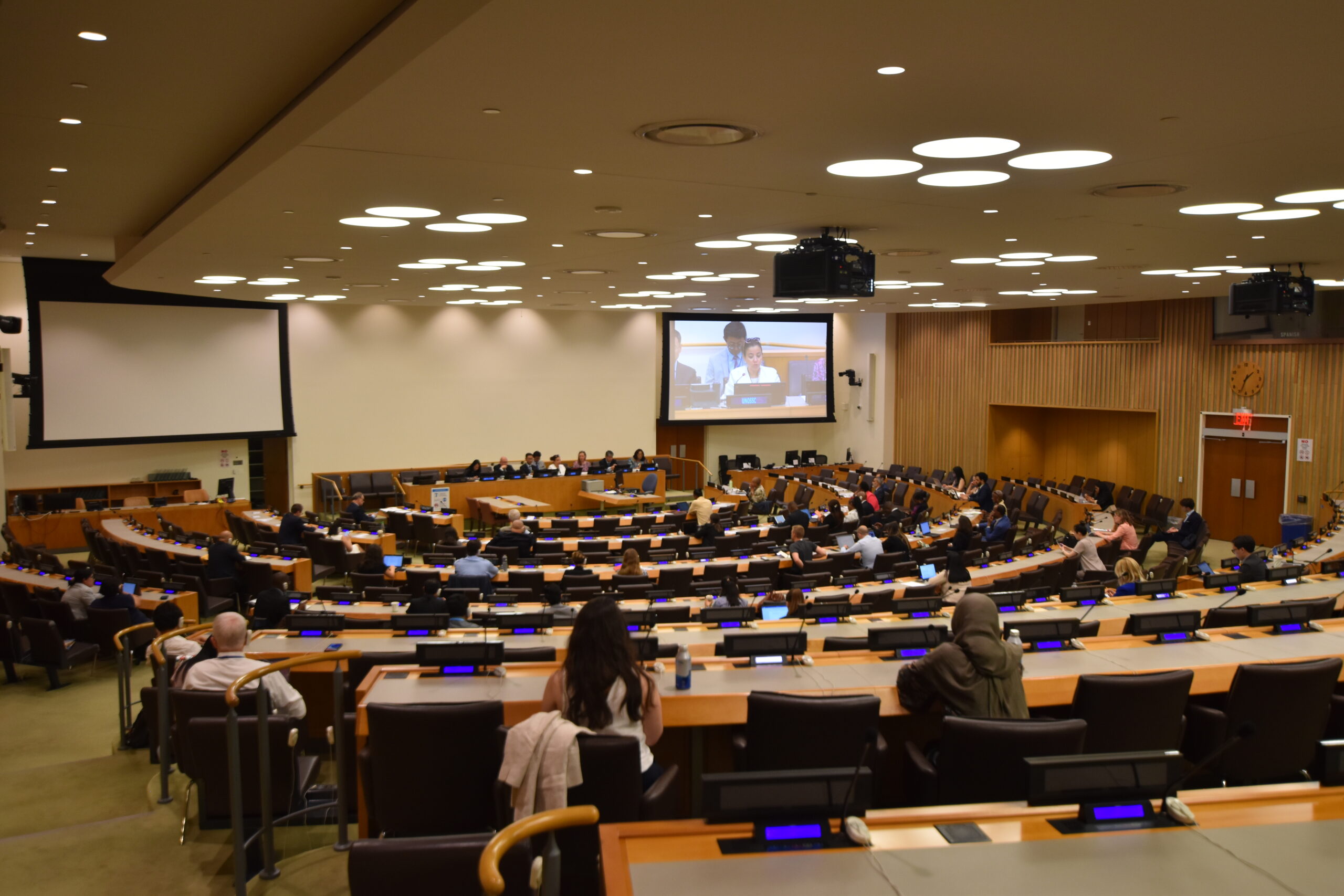July 8 2024, UN Headquarters, New York: On the occasion of the 2024 High-Level Political Forum on Sustainable Development (HLPF), the International Atomic Energy Agency (IAEA), the International Telecommunication Union (ITU), the United Nations Office for South-South Cooperation (UNOSSC), and the Permanent Missions of Namibia and the United States to the UN hosted a side event on “Adaptation, Mitigation, and Monitoring: Innovative Science-based Climate Action Solutions.” The event underscored the critical role of science and technology, including nuclear science, in addressing global climate challenges and advancing Sustainable Development Goal 13 (SDG 13) on climate action.

The moderator, H.E. Ambassador Vivian Okeke of the IAEA, opened the session by welcoming participants and organizers, and emphasizing the importance of collaborative efforts to achieve the SDGs. In his opening remarks, Mr. Hua Liu, Deputy Director General of the IAEA, highlighted the agency’s initiatives supporting SDG 13, particularly through South-South and triangular cooperation. He discussed the application of nuclear science in areas such as groundwater management and low-carbon energy solutions, and the significance of democratizing access to these technologies via platforms like UNOSSC’s South-South Galaxy.
H.E. Ambassador Geng Shuang of China addressed the participants by stressing the urgency of climate action and China’s commitment to a green, low-carbon transition. He highlighted China’s leadership in green technologies, such as electric vehicles and renewable energy projects, and reaffirmed China’s support for multilateral cooperation to combat climate change. Ambassador Geng also mentioned China’s collaborative efforts in South-South cooperation, including solar and wind power initiatives with the United Arab Emirates and Pakistan, respectively.
During the panel discussion, Ms. Dima Al-Khatib, Director of UNOSSC, underscored the role of South-South and triangular cooperation in climate action. She emphasized the importance of knowledge and technology exchanges in developing sustainable climate solutions tailored to specific contexts. Ms. Al-Khatib highlighted the role of digital platforms, such as South-South Galaxy, in facilitating access to knowledge and data, thus enhancing the impact of climate initiatives.
Speakers also shared their experiences and challenges related to climate adaptation and mitigation. H.E. Ambassador Neville Gertze of Namibia discussed the country’s environmental constraints exacerbated by climate change and the beneficial partnerships with the IAEA, which have supported agricultural advancements and water management solutions. Mr. Hua Liu presented innovative tools for soil moisture measurement and glacier monitoring, showcasing IAEA’s contributions to real-time data collection and climate resilience projects. Interventions from the floor included H.E. Ambassador Mathu Joyini of South Africa, and H.E. Minister Jesus Enrique G. Garcia of the Philippines.
The event concluded with remarks from H.E. Ambassador Michele Sison of the United States, who highlighted the significance of technology and collaboration in achieving SDG 13. She commended the diversity of initiatives discussed and recognized the complementary efforts of UNOSSC and USAID in promoting collaborative solutions for sustainable development. Ambassador Sison expressed gratitude to all organizers and participants, underscoring the collective commitment to advancing climate action through innovative science-based solutions.
This event demonstrated the power of international cooperation and the integration of advanced scientific techniques in tackling climate change, setting a precedent for future collaborative efforts in achieving sustainable development goals.
